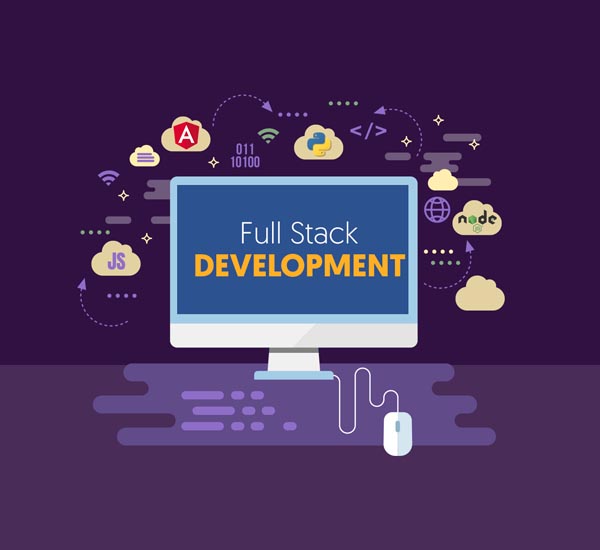Description
Full Stack Web Development with Angular and C# ASP.NET
In today’s fast-evolving world of web development, the combination of Angular and C# ASP.NET offers a powerful and versatile approach for building dynamic, responsive, and scalable web applications. Full Stack Web Development involves working on both the frontend (client side) and backend (server side) of web applications, and mastering these technologies allows developers to deliver robust, modern web solutions that can handle complex functionality.
This guide covers Full Stack Web Development with Angular and C# ASP.NET, two of the most popular technologies in the industry, combining the frontend capabilities of Angular with the backend power of ASP.NET Core. Together, they provide a streamlined approach for building full-featured web applications, from crafting user interfaces to implementing data management systems and business logic.
What is Full Stack Web Development with Angular and C# ASP.NET?
Full Stack Web Development refers to the ability to develop both the frontend (user interface) and backend (server-side logic) of a web application. The frontend is typically what the user interacts with directly, while the backend handles data processing, business logic, and interaction with databases. Full stack developers have the skill set to work across both areas, ensuring the seamless integration between the client-side and server-side elements.
In this context, Angular is the framework for building interactive and responsive frontend interfaces, and C# with ASP.NET is used to create the backend APIs and services that manage data and perform business operations.
Why Choose Angular for Frontend Development?
Angular is a widely used TypeScript-based framework developed by Google, designed for building single-page applications (SPAs). It allows developers to build dynamic, responsive, and rich user interfaces with a component-based architecture.
Here’s why Angular is a go-to choice for frontend development:
- Component-Based Architecture: Angular’s use of components encourages modular code, which is easy to maintain, test, and reuse across multiple parts of the application.
- Two-Way Data Binding: Angular allows for seamless synchronization between the model and the view. This makes it easier to implement interactive features and real-time updates in web applications.
- Rich Ecosystem: Angular offers a wide array of features like form validation, routing, HTTP client, and state management, all built-in, which simplifies the development process.
- TypeScript Support: Angular is built using TypeScript, which provides static typing, interfaces, and improved code maintainability, helping developers write cleaner, more manageable code.
- RxJS for Reactive Programming: Angular leverages RxJS, a library for reactive programming, to handle asynchronous events, which is especially useful when dealing with real-time data, API calls, and user interactions.
Why Choose C# ASP.NET for Backend Development?
ASP.NET Core is a powerful, cross-platform framework for building modern, scalable web applications. Developed by Microsoft, it is written in C# and supports RESTful API development, making it a popular choice for backend development. Here’s why ASP.NET Core paired with C# is an excellent choice for backend development:
- Cross-Platform Compatibility: ASP.NET Core runs on Windows, Linux, and macOS, making it highly versatile and ideal for modern, cloud-based applications. It allows full-stack developers to deploy their applications on different operating systems.
- High Performance: ASP.NET Core is known for its speed and efficiency, optimized for high-performance web applications. It can handle thousands of concurrent requests and is highly suitable for building large-scale web applications.
- Scalability: ASP.NET Core provides built-in tools and libraries to scale applications seamlessly, making it suitable for both small projects and large enterprise solutions.
- Security Features: ASP.NET Core comes with numerous security features, including built-in support for authentication, authorization, data protection, and input validation, which are essential for building secure web applications.
- Rich Ecosystem: With support for Entity Framework Core, developers can easily interact with databases, perform data migrations, and implement CRUD (Create, Read, Update, Delete) operations without complex configuration.
- RESTful API Development: ASP.NET Core excels in building REST APIs, which can be consumed by the Angular frontend. By utilizing Web API controllers in ASP.NET, developers can efficiently handle HTTP requests, manage resources, and integrate with databases.
Key Skills for Full Stack Development with Angular and ASP.NET Core
To become proficient in full-stack development using Angular and ASP.NET Core, here are the key skills you need:
- HTML, CSS, and JavaScript: Basic web development technologies to build the structure, style, and interactivity of the frontend.
- Angular Framework: Knowledge of Angular components, directives, services, pipes, and routing to create modern, dynamic web interfaces.
- TypeScript: Understanding TypeScript is essential since Angular relies on it for creating type-safe applications.
- ASP.NET Core: Familiarity with C#, ASP.NET Core MVC, Web API development, and Entity Framework Core for database access.
- RESTful APIs: Building REST APIs with ASP.NET Core to allow communication between the frontend and backend.
- Database Management: Understanding how to use SQL Server or NoSQL databases with Entity Framework to manage application data efficiently.
- Authentication and Authorization: Implementing secure login and user management with JWT (JSON Web Tokens) or OAuth in both frontend and backend.
- Version Control (Git): Using Git for version control to collaborate on projects, track changes, and manage repositories.
- Deployment: Knowledge of cloud services (Azure, AWS, or Heroku) for deploying full-stack applications.
Benefits of Learning Full Stack Development with Angular and C# ASP.NET
- End-to-End Development: With knowledge of both frontend and backend technologies, developers can create full-featured applications from scratch, handling everything from UI design to data management.
- In-Demand Skills: The combination of Angular and ASP.NET Core is highly sought after by companies looking to build modern, scalable web applications. Mastering both will make you a valuable asset to employers.
- Rapid Development and Prototyping: The integration between Angular and ASP.NET Core allows for faster development cycles, enabling full-stack developers to quickly build, test, and deploy web applications.
- Job Opportunities: Full-stack developers with expertise in Angular and ASP.NET Core are in high demand. Many companies prefer developers who can handle both frontend and backend tasks, as it reduces the need for specialized roles.
- Scalable and Maintainable Applications: Learning full-stack development ensures that your applications are both scalable and maintainable, especially with the strong architecture and design principles used in both Angular and ASP.NET Core.
Learning Full Stack Web Development with Angular and C# ASP.NET opens the door to a wide range of career opportunities, from building small-scale applications to large enterprise-level systems. The combination of Angular’s modern frontend capabilities and ASP.NET Core’s high-performance backend solutions creates a seamless environment for building end-to-end web applications.
Also Checkout
Best Bulk WhatsApp Sender with Reseller Panel 3.5
Also Checkout – https://digitalstock.co.in/product/bulk-whatsapp-sender-reseller-panel/
Official Contact – https://coderedsoftwares.com/contact













Reviews
There are no reviews yet.